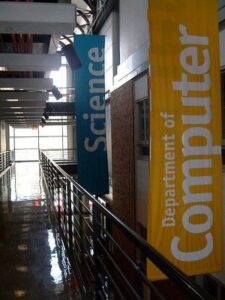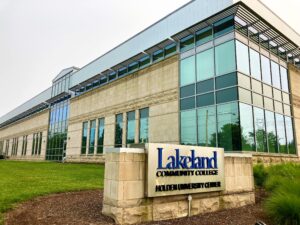Earlier this week, Kirkwood Community College in Cedar Rapids, IA released the results of a community college hiring survey of local employers. The Skills 2024 Survey asked employers about the hiring and retention challenges they currently face. There were no real surprises in the results. Employers aren’t finding the candidates they need to fill their open positions.
KCC serves a seven-county region in Eastern Iowa. It reported an unduplicated headcount of about 17,500 students in 2021. In this year’s Skills survey, 137 employers shared their opinions, experiences, and concerns about Eastern Iowa’s labor environment.
Repeatedly, employers who responded to the community college hiring survey said that their number one challenge was the lack of qualified candidates available to them. Second on their list was the small labor pool. Third was recruiting and retention.
“Qualified candidate” is something of a loaded term. When asked to identify what was missing in the employees they already had on the payroll, employers overwhelmingly identified “work ethic” and “communication skills” as the top two skill gaps. Only after reaching the third position on the list could employers identify hard skills (industrial tech, manufacturing, welding) their current workforce lacks.
In evaluating their applicants, once again, employers identified “soft skills” as the primary gap. Once again, “work ethic” found its way to the top of the list, followed by “lack of experience.” “Lack of applicants” rounded out the top 3.
Community college hiring survey shows holes in approach
Nine out of ten employers reported having difficulty in filling open positions in the preceding 12 months. When asked, employers cited “lack of applicants” as the primary reason their open positions went unfilled. The second reason was “lack of experience/knowledge/training.”
When asked how employers manage the differences between what they need and what they can find in the applicant pool, they reported a variety of strategies. These included increasing pay, making existing employees work overtime, broadening their recruiting efforts, hiring less qualified candidates, and leaving vacant positions open.
Lack of experience/knowledge/training is hard to reconcile with the strategy that many community colleges – including Washtenaw Community College – have pursued. Instead of improving or expanding educational programs, community colleges have whittled them down, substituting non-degree certificates for degrees. The result: “lack of experience/knowledge/training.
Of course, one of the primary differences between a degree and a certificate is the amount of critical thinking skills a person develops in a degree program. Certificate programs lop this coursework off because it is “non-essential” to building the hard skills employers want.
But as the Kirkwood CC survey shows, employers clearly want these previously delivered skills in their current and future workforce. The “quick-start” minimal training approach doesn’t generate workforce-ready candidates. Instead, it creates candidates with large skill gaps that are sometimes so large that an employer would prefer to leave the position vacant than fill it with half-trained, half-skilled, underqualified or just plain unqualified workers.
So, the community college administration needs to explain why – when employers are asking for more well-rounded candidates – WCC is supplying them with the exact opposite of what they want. Only when they can answer that question will community college students be able to determine the value of a community college degree.
Photo Credit: Roadsidepictures, via Flickr















